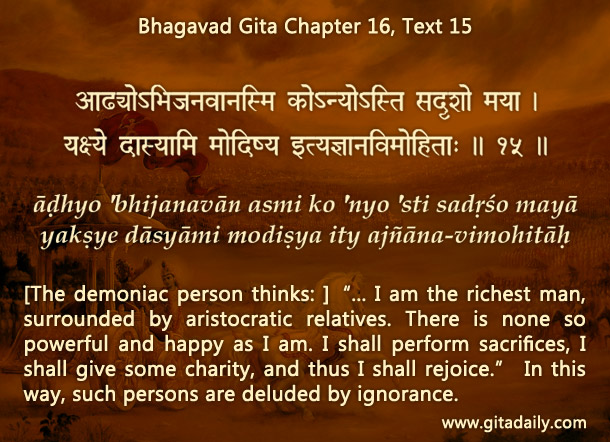Exploiting others’ weaknesses doesn’t make us strong – overcoming our own weaknesses does
Some people see the world primarily in terms of power struggles. They center their life on maneuvering and manipulating to get the upper hand over others. To that end, they often zero in on others’ weaknesses. And if they succeed in exploiting such weaknesses, they consider themselves smart and strong.
In the Mahabharata, the Kuru king Dhritarashtra had one big weakness: his attachment to his son, the evil Duryodhana. That prince fully exploited his father’s weakness, making the latter acquiesce to his various machinations to bring down the Pandavas, the cousins he was envious of. And Duryodhana thought himself brilliant every time he made his father dance to his tune. Though he thought he was becoming stronger by his scheming, what was actually becoming stronger was his envy. Because he was so envious and because he overestimated his strength, he rejected Krishna’s most accommodating peace proposal, thereby courting his own destruction in the ensuing Kurukshetra war.
Duryodhana typifies the demonic people, whose mindset is described in the Bhagavad-gita’s sixteenth chapter. If their schemes to down others succeed, they think themselves perfect, with no one as good as them – such is their delusion (16.15).
Significantly however, the way to strength is not outward, by exploiting others’ weaknesses; it is inward, by overcoming our own weaknesses. How can we go inward? By identification and connection. We need to identify our core, our spiritual essence; and then connect it with the whole: our indwelling Lord, the all-attractive source of all satisfaction. We can best connect with him by practicing bhakti-yoga.
When we become thus connected, we gain the strength to win the most consequential power struggle: the struggle against our own weaknesses. Why is this struggle the most consequential? Because winning it yields the ultimate victory: a life of lasting love and joy.
Think it over:
- How did exploiting Dhritarashtra’s weakness weaken Duryodhana?
- How can we become truly strong?
- Which is the most consequential power struggle? Why?
***
16.15 The demoniac person thinks: “… There is none so powerful and happy as I am. I shall perform sacrifices, I shall give some charity, and thus I shall rejoice.” In this way, such persons are deluded by ignorance.”

To know more about this verse, please click on the image
Explanation of article:
https://www.youtube.com/watch?v=NqJ4XigxckQ
Podcast:

Amazing article, it so beautifully explains how demoniac men like Duryodhana, due to their envy, remain deluded their whole life despite reading scriptures like Bhagavad-Gita.
Thank you for your thoughtful comment
Hare Krishna .. Very true . After taking for Krishna consciousness understand this fallacy .
JAPA turns weaknesses in boon